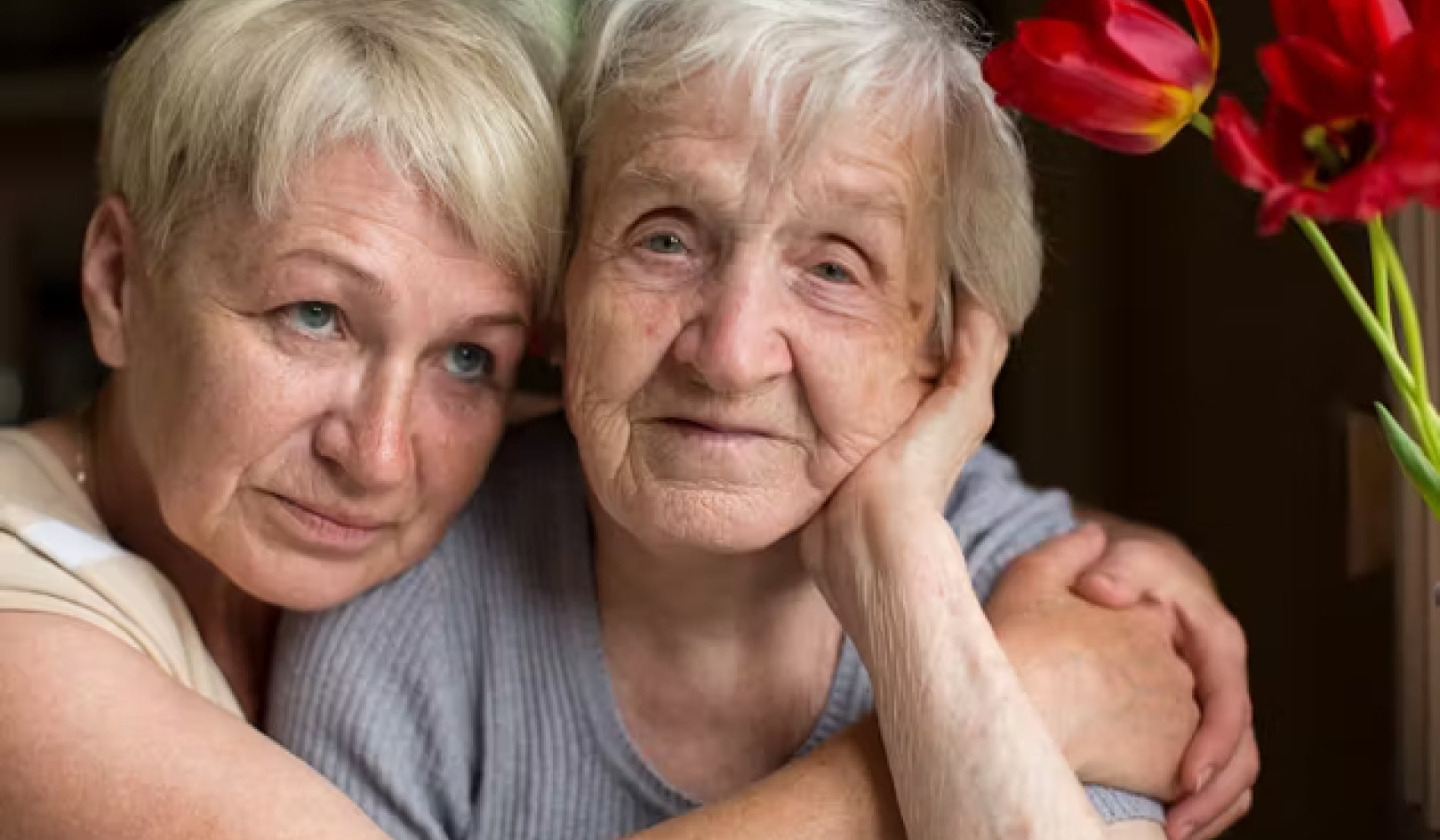As part of China's desperate attempt to curb its staggering population growth, the government has instituted a one-child-only policy throughout most of the country. By the hundreds of thousands every year, baby girls are aborted or, more tragically, abandoned. While Beijing officials deny that only girls are abandoned, the only males found in the orphanages are those with severe birth defects or disabilities. The primary reason the Chinese want a male baby is that children are the Chinese social security system: It is the child's responsibility to care for his parents in their old age. Girls become part of their husband's household in marriage, often living with the husband's family, so it is his parents who will receive her care.
Left Out To Die
Where are the little girls and what happens to them? Many are left to die at birth by women who have hidden their pregnancy, knowing that if they give birth to a girl, they will need to dispose of it. And that's against the law. No one knows how many babies are left to die. Thousands are found abandoned by the roadside, in stores, on hospital or police station doorsteps. Their fate is uncertain. Makeshift orphanages can hardly absorb the numbers. Children sleep three and four to a small crib. Infections spread rapidly; one baby's slight cold can become the death rattle of a cribmate. Very ill children are isolated, often left to die. Many orphanages even have a dying room.
The healthy children quite literally live in their cribs. They don't go for walks or even see the outdoors. No one gives them toys or visual stimuli. No one cuddles or soothes them. They have a crib and a schedule. Bottles are placed in the crib and the child's head turned towards it to latch on. It is the baby's success rate with this simple act that determines her life: hold the bottle, do it yourself, take sustenance, you live.
Providing a Better Life for Children
It's not that the Chinese don't love these children, there are just too many of them for adequate care -- thus, the foreign adoptions. China is, however, a proud, isolationist country concerned with saving face and "opens" and "closes" its door on foreign adoption at will, depending upon its attitude toward a given country at a given moment. As of this writing, that door is virtually shut, and many children will remain homeless and die as a result. Even in a good year, the adoption of several thousand children hardly makes a dent in this ongoing catastrophe.
Mimi Williams had to wait for that door to reopen. When it finally did, I had become involved in her story, monitoring the difficult journey. Yet, at the time, it was still just a television movie to me.
Mimi and Baby Grace came home to a hero's welcome. This little girl not only had a mom, but an entire parish as her family. Our first private photo captured Grace sound asleep clutching her mother's jacket with a grip that said she was not going to let go, ever. When Grace awoke, she wouldn't take her eyes off her mom, not even when Mimi had to use the bathroom. Grace, Mimi, and I all walked to the bathroom together, Grace still attached to the jacket, eyes riveted on her mother. It was a memorable scene.
And A Child Shall Lead Them
This scene reached deep inside me and touched the bottom of my soul. Something about little Grace's face burned right through me. Like finding religion. Like a calling. And it scared me. While I can be impetuous, I'm fairly selfish about my life and my family. I don't like disruptions and I hate new circumstances. To all but the most intimate of intimates, I appear to be impervious to pure emotion, and here I was, barely able to breathe. It was a moment of awakening. Time to take a stand. Time to make my presence felt. Time to do something.
Some months later, after I had thoroughly researched the adoption process, I approached my husband in a conversation that went like this: "I've been thinking. I'd like to adopt a child." Dead silence. "...from China." Stunned dead silence.
Long before I shared this shattering revelation, Jim Winston had won my award for the world's most wonderful husband and father of the century. Our decision to have children had been a thirteen-year discussion while we each built careers and followed selfish pursuits before taking action. Having our two children was, by far, our best decision in life. The reality, though, is that children are also time suckers and money suckers. Since we regularly run out of both of these commodities, this adoption made no sense.
While Jim did not give me an unqualified "no", he truly thought I had lost my mind. Then he began his own education, reading and talking to adoptive parents, parents-to-be, and adoption agencies. When Jim suggested we take up the subject with our children, I knew he was with me. For our five-year-old daughter, Dani, the idea of a little sister was delicious, and for that ever-compassionate, incredible son of mine, James, beyond his concerns of finding baby drool all over his stuff, he felt it was time to "shake it up" at home.
Have You Lost Your Mind?
The subsequent nine months of paperwork and social worker's home study were uneventful, and actually served as an appropriate gestation period for our family. Now it was our family and friends who thought we were crazy. While our peers were sending kids off to college, we were thinking about cribs and diapers.
This was much more than a decision to add to the family. We were altering its dynamics. We had worked hard to teach our children to understand racial differences; now we were to become a transracial family. We would live it. We had taught our children about haves and have-nots. Now we were going to make it possible for someone who had nothing to have a family. We had taught that love multiples, it does not divide, and that love knows no boundaries, not even geographic ones. We had hit the tender age of "Where do babies come from?" and answered honestly when prodded by "Tell me, really," amused by the "Oh, gross!" reactions. Now we talked about what defines a mother and a father when biology steps aside.
The night before Jim and I left for China, I was struck by my one and only moment of doubt. Looking around the dining room table at the family we had created, two beautiful children who at that moment were not fighting with each other, I tried to imagine the same scene two weeks later. I couldn't.
As parents of biological children, we had had to agree to accept a child with a "correctable handicap". The Chinese believe that, since we should all have only one child, those in violation should take care of hard-to-place children. We had signed up, fully willing to take the child given to us, just as we did when I physically gave birth. Leaving our children at home with my still-disbelieving mother, we left to give birth again.
Hong Kong Adoption
We flew to Hong Kong, where we met the others making this journey. Twenty-four of us, who were to be linked for life by this shared momentous experience, boarded a train for mainland China. We were strangers caught up in our private dreams and desires. On the faces of our companions, travel fatigue aside, I saw long tales of need, marked by anticipation or outright fear. One day you're just you, and the next day someone's calling you "Mom" or "Dad".
It didn't take long to realize that Jim and I were the anomaly: We weren't childless or desperate, we hadn't suffered, and we weren't new to the idea of parenting. Our companions were quiet, perhaps introspective, wanting to come and go as quickly as possible. To them, China was a means to an end. China was, to me, the beginning of a brave new journey, a beginning I wanted to absorb in great detail. I soaked up the culture, the history, the sights and sounds of this foreign world, struggling to understand a culture and a social situation I would one day have to explain to my daughter.






















